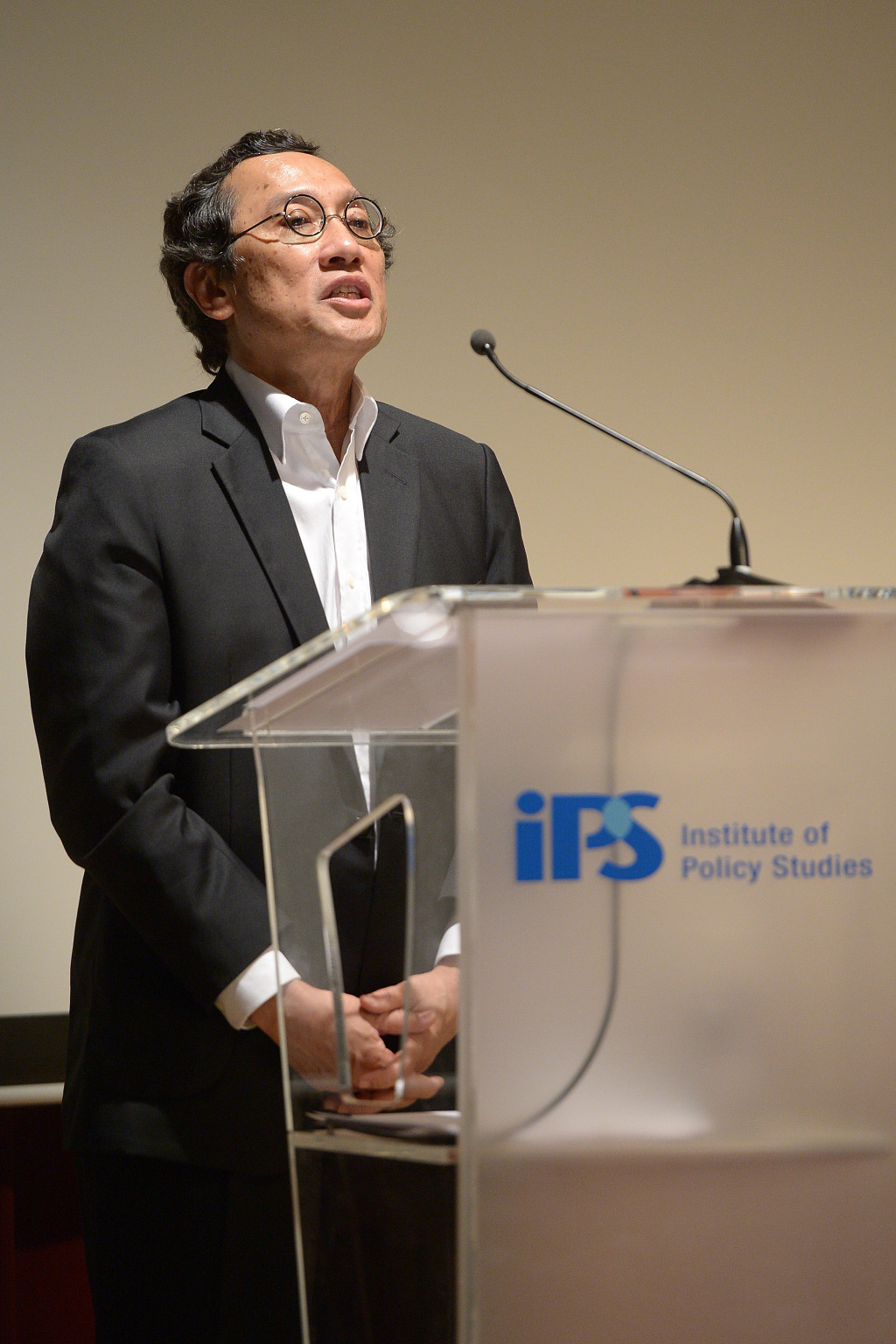China ‘trying to become the central Asian power’

In the third of his five-lecture series, Singapore’s ambassador-at-large Bilahari Kausikan addresses head-on the issues surrounding Asean’s delicate ties with the United States and China, especially amid escalating tensions in the South China Sea. Desmond Wee/Singapore Press Holdings
SINGAPORE—China’s continued ratcheting up of its presence in the South China Sea is a bid to reassert itself as the central power in Asia, Singaporean ambassador-at-large Bilahari Kausikan said Wednesday.
The crux of the matter was that “China must give the appearance of recovering lost territory” because “for the past century, the legitimacy of any Chinese government has depended on its ability to defend China’s sovereignty and preserve its borders”, he said in his third lecture as the Institute of Policy Studies’ S R Nathan Fellow.
China’s territories had included Mongolia and Siberia in the past.
But as history has marched on, China can now lay claim only to outlying islands and outcrops such as the Paracels, the Spratlys and Macclesfield Bank, he said, stressing at the outset that the views at the lecture were entirely his own.
READ: Anxiety over power play in South China Sea
With the United States emphasizing that it intends to remain an East Asian power, Kausikan said China was merely trying to nudge the US a little more off-center in the region. The challenge for China was how to do so without “provoking responses from the US and Japan that could jeopardize Chinese Communist Party rule”.
The US, on the other hand, had always to find ways to “accommodate” China while assuaging its allies’ concerns about its overtures to China without, as he put it, “stumbling into conflict”.
And the view that the US was trying to contain China by forging the Trans-Pacific Partnership (TPP) with allies in the Asia-Pacific, including Japan and South Korea, was “arrant rubbish”. This was especially so as most TPP signatories were also part of the Regional Comprehensive Economic Partnership, a Chinese initiative.
READ: China flexes military muscle as Xi lauds its power
Taking questions from the audience later, he noted the long continuity in US foreign policy of having a regional presence and suggested that if US establishment stalwart Hillary Clinton won the upcoming presidential polls, that policy would likely not change. He could not say the same for Republican candidate Donald Trump, though.
Still, the South China Sea was “the issue where the parameters of US-China competition and their interests are most clearly defined”, and so the world would have to watch developments closely.
With both powers declaring Asean “strategic” in its regional maneuvers, the grouping was squarely between the two competing powers, especially since the US prized freedom of navigation through the area. Last month’s Sunnylands summit between US and five Asean leaders was yet another instance of the US “courting” Asean.
But he cautioned Asean from being “mesmerized” into thinking it was now the darling of great powers. “We used to speak of Asean in the driver’s seat. The person in the driver’s seat is sometimes only the chauffeur,” he said, noting that the US and China treated Asean forums as “secondary” and a means to conduct talks between themselves.
But it did not help that China’s diplomats had a “passive-aggressive style” towards their Asean counterparts. There were examples aplenty of such shabby treatment of Asean, including working “glacially” with the latter on a Code of Conduct for the South China Sea.
All that resulted in a “trust deficit” between China and Asean, which China’s President Xi Jinping acknowledged in his Singapore Lecture here last year.
Kausikan said the US and China had more interests in common than is popularly supposed, and so it would not be inconceivable if they became allies in future.














